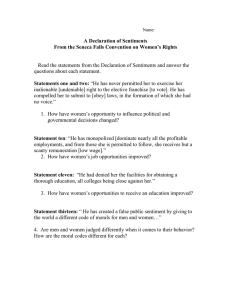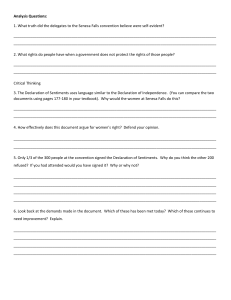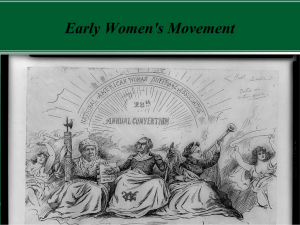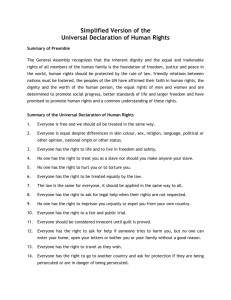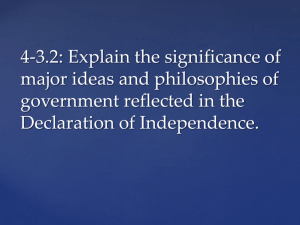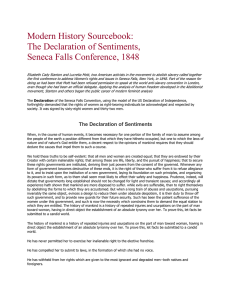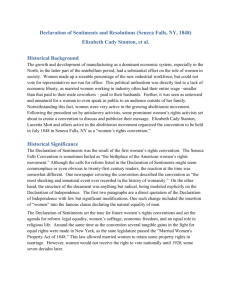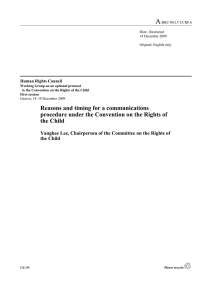Seneca Falls Convention, Declaration of Sentiments (1848)
advertisement
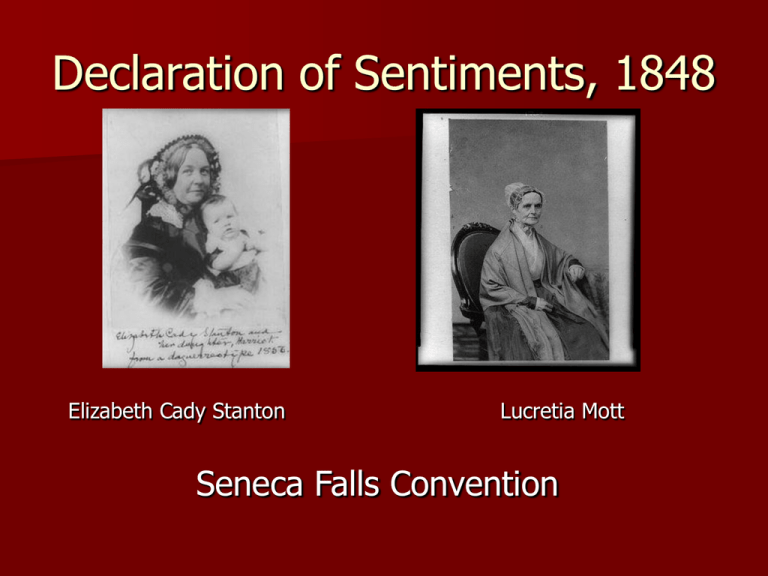
Declaration of Sentiments, 1848 Elizabeth Cady Stanton Lucretia Mott Seneca Falls Convention Social Snapshot Women, as members of mixed-sex societies, fought against injustices of: – – – – – The need for free public education for all children The abuse and neglect of criminals and mental patients Slavery The evils of drink (for Prohibition) Women’s legal position Since the Revolutionary period, population and geographic boundaries of the United States had doubled and shifted westward. Economy was shifting away from farming towards manufactured goods, banks and cash crops. Changes left some feeling isolated, or without a sense of community. Audience “a candid world” Other women – The Seneca Falls Convention served as a pep rally for women’s rights activists. – Encourages women not in the movement to join, or just think about their positions. Men (Politicians, husbands, fathers, brothers, bosses, clergy, etc.) Main Points Women declared their independence and inalienable Rights: Life, Liberty and the pursuit of Happiness. “We insist that [women] have immediate admission to the rights and privileges which belong to them as citizens of the United States.” “…Such has been the patient sufferance of the women under this government, and such is now the necessity which constrains them to demand the equal station to which they are entitled.” Main Points Men have created a social and political tyranny over women by not recognizing their civil liberties. “He has endeavored, in every way that he could, to destroy her confidence in her own powers, to lessen her self-respect, and to make her willing to lead a dependent and abject life.” “He has made her, if married, in the eye of the law, civilly dead.” “He has compelled her to submit to laws, in the formation of which she had no voice.” “He has withheld from her rights which are given the most ignorant and degraded menboth natives and foreigners.” “He has never permitted her to exercise her inalienable right to the elective franchise.” “He has taken from her all right in property, even to the wages she earns.” “In the covenant of marriage, she is compelled to promise obedience to her husband, he becoming, to all intents and purposes, her master.” …if single, and the owner of property, he has taxed her to support a government which recognizes her only when her property can be made profitable to it.” 1 Social Impact After the convention, some parties removed their names due to societal pressures. The Convention was said to have mocked, not utilized, the Declaration of Independence. This stand put the women’s movement back a few steps. Feminism today has a negative connotation. Questions to consider How could an Abolitionist consistently oppose slavery but favor the continuation of women’s inferior status? Why were so many of their contemporaries, even among the Abolitionists, deeply disturbed by the Declaration? What contemporary groups, if any, could utilize Jefferson’s language in the Declaration of Independence for their own purposes?
